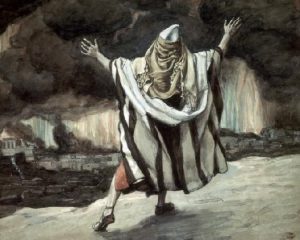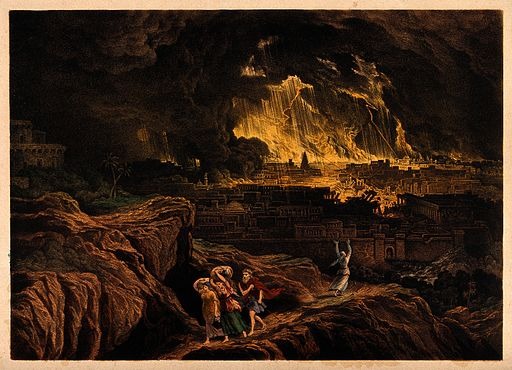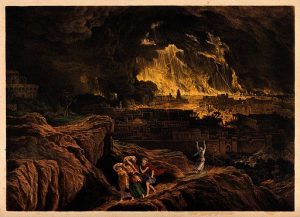by Lois Tverberg
Thus it came about, when God destroyed the cities of the valley, that God remembered Abraham, and sent Lot out of the midst of the overthrow, when He overthrew the cities in which Lot lived. – Genesis 19:29
In the book of Genesis, we are introduced to many biblical ideas that have transformed all of humanity. We often don’t think about how radical and surprising they are. One idea that was shocking in its time was that one powerful God created the world, and that this God was moral and demands morality of His people. This was radical and different than the pagan idea that there were many gods, and none of them cared what humans did.
Another surprising idea that comes from the Bible is that mercy is shown to the guilty for the sake of an innocent person. If you think about it, this is quite illogical. We don’t give a gift to one person because we appreciated what someone else had done for us. But yet we have gotten used to the idea that God will pardon many because of the faithfulness of just one or a few.
One example is that when Abraham begged God to spare Sodom, he assumed that God would spare an entire city for the sake of even 10 innocent people in it, and God agreed. He didn’t just ask God to remove the innocent and then punish the rest (which would be logical), he asks God to pardon everyone for the sake of just a few. This really is extravagant mercy, to release everyone for the sake of just a few.
When the angels went to Sodom, they couldn’t find even ten people which would spare the city from its fate. But God did save Lot and his family, although the Bible hints that they weren’t much different than the Sodomites. Lot had become a community leader and his children were intermarrying with the population.
Interestingly, as it says in today’s verse, God didn’t save Lot’s family for their own sake, but for the sake of Abraham, who had been faithful to him. Once again we see this “illogical” logic, that for some strange reason, because of the merit of the a faithful person, sinners are pardoned because of it.
It is as if God gradually preparing his people to understanding his future great act of redemption in Christ, whose righteousness was conferred on us, and we are pardoned for his sake.
Thank goodness for God’s illogical mercy!





